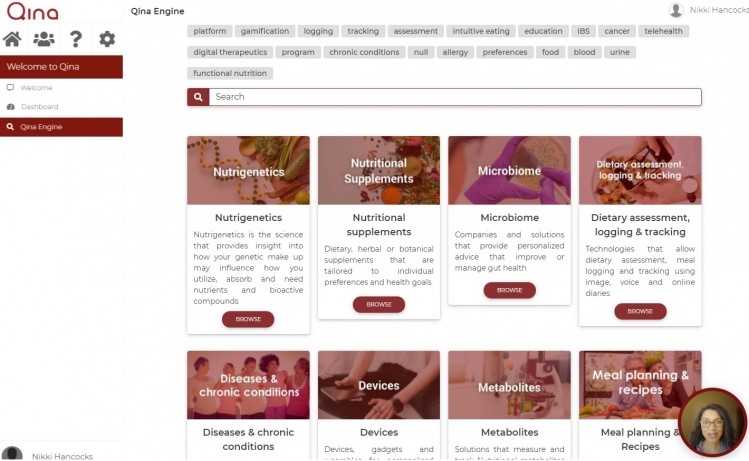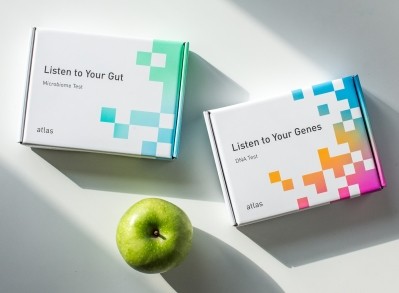Personalised nutrition 'engine' boosts transparent, quality innovation

Launched this week, the new 'Qina Engine', currently lists around 200 personalised nutrition companies, with a full profile of their services, products, activities, and scientific backing, alongside a 'Qina score' out of 100.
The score is based on a criteria developed after pulling together all available guidelines on nutrition service safety from across the globe, such as that from the European Commission's AI ethics guidelines and the NHS' digital health guidance for behaviour change.
Qina's founder and CEO, Dr Mariette Abrahams, says she decided the database was necessary after finding that companies, health practitioners, and other experts in this space where frequently asking her opinion on various new companies entering the market as they needed to quickly determine the calibre of the product or service.
"The market is getting very crowded and it's very easy to call something personalised, or say it's a company based on science, when it's not," she explains to NutraIngredients.
"Part of the reason for this is that no organisation or association has come up with a benchmark to say what makes for a good personalised nutrition company. This database creates a good baseline for personalised nutrition solutions."
This is a subscription-based B2B platform which will not only provide a quality check on those in the market but will also make life easier for anyone who needs to get to grips with who's involved in this fast-evolving industry.
"For example, I envisage health practitioners will use this platform when they are trying to decide what are the best services to suggest to their clients," Dr Abrahams explains. "Or perhaps their client will come to them asking about a company their friend recommended. Experts need to be able to quickly look up these companies and see how trustworthy they are."
The platform also allows users to ask questions and receive feedback from the Qina consultancy.
What's more, Qina will relay client questions and comments to the companies themselves, therefore helping industry players to gain insight into what their clients need, and to better provide for them.
By providing an exhaustive view of innovations in the market, the platform also reveals key trends in the industry, giving a good idea of what services and innovations are likely to stick.
For example, Dr Abrahams says image based logging - with AI working out the nutritional value of meals from a photo - has quickly become a popular addition to services that require the customer to keep a food diary.
"Firstly, this technology makes for an incredibly user-friendly experience. But also, one concern with personalised nutrition is the potential to lead to obsessive calorie and gram counting. Logging meals into food diaries by simply taking a picture of the meal means the customer doesn't need to work out exact grams of nutrients, therefore stemming the risk of obsessive behaviours."
This safety aspect is another element of Qina's scoring criteria - whether the service includes safety checks from health professionals.
"People might be excessively exercising or cutting too much out of their diet. Some companies are good at tackling that, while others have no system in place at all.
"This tool should help to promote those truly high quality innovations and bolster the industry as a whole through increased transparency, accountability and clear standards."








